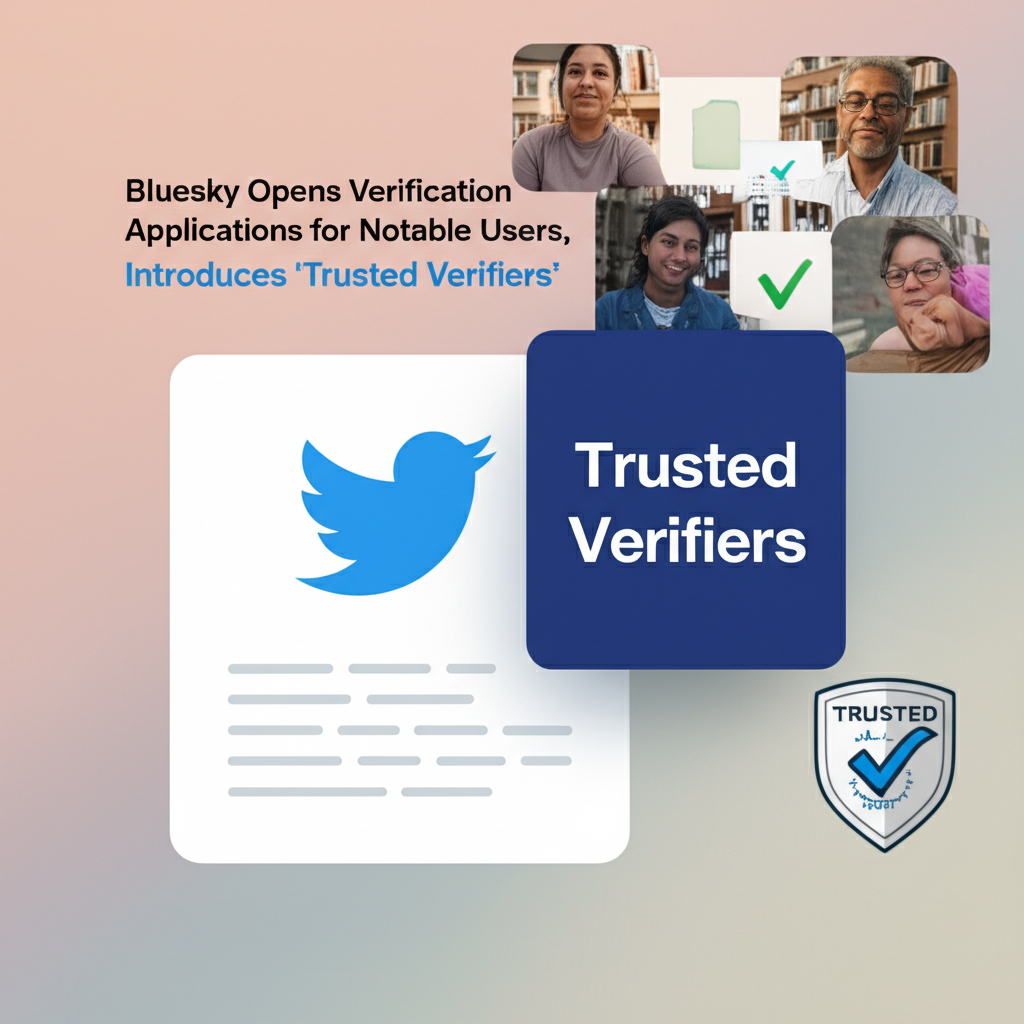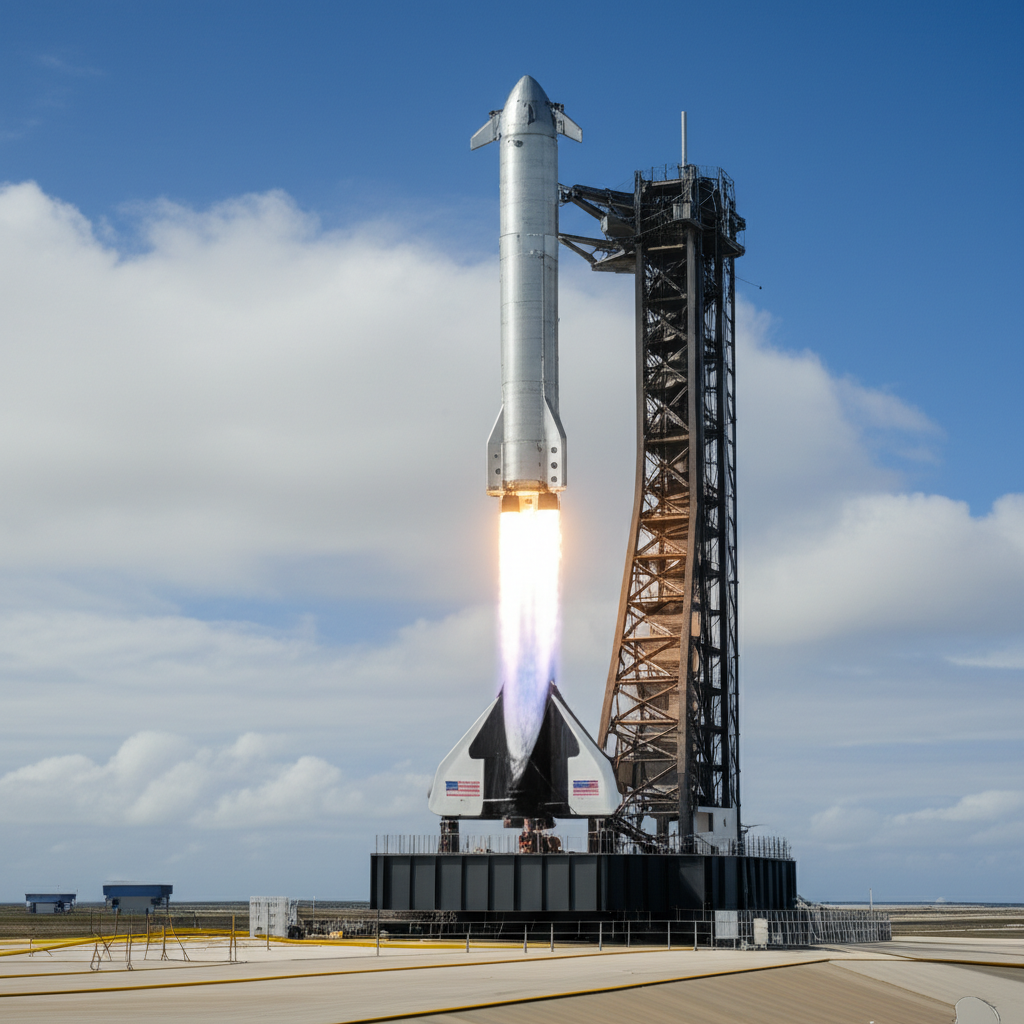OpenAI and Partners Unveil Stargate UAE: A Landmark Gigawatt AI Data Center in Abu Dhabi
The global race for artificial intelligence dominance isn't just about developing smarter algorithms or more capable models; it's fundamentally a race for infrastructure. The insatiable demand for computational power to train and run increasingly complex AI systems has sparked a worldwide scramble to build data centers on an unprecedented scale. At the forefront of this movement is OpenAI, the company behind ChatGPT, which has reportedly been planning a colossal, multi-trillion-dollar data center initiative dubbed "Stargate." Now, those ambitious plans are taking concrete shape in the Middle East.
As rumored and now officially confirmed, OpenAI is indeed expanding its ambitious Stargate data center project to the Middle East. On Thursday, the company announced Stargate UAE, a project set to bring a monumental 1GW (gigawatt) data center cluster to Abu Dhabi. This isn't just another server farm; a 1GW capacity signifies a facility capable of consuming as much power as a small city, dedicated almost entirely to fueling the demanding computations required by advanced AI.

The scale of Stargate UAE underscores the sheer computational muscle required for the next generation of AI. Training large language models (LLMs) and other complex AI systems involves processing unfathomable amounts of data and performing trillions of calculations. This requires vast arrays of specialized hardware, primarily graphics processing units (GPUs) from companies like Nvidia, housed in facilities with immense power, cooling, and networking capabilities. A gigawatt-scale data center is designed precisely for this purpose, providing the concentrated compute power necessary to push the boundaries of AI research and deployment.
A Coalition of Global and Regional Partners
Building infrastructure of this magnitude requires significant capital, technical expertise, and strategic partnerships. OpenAI is not undertaking the Stargate UAE project alone. The announcement highlighted a powerful consortium of partners, including:
- G42: A leading UAE-based AI and cloud technology holding group, providing crucial local expertise and investment.
- Oracle: A major player in cloud infrastructure, likely providing the underlying cloud platform and potentially contributing to data center design and operations.
- Nvidia: The dominant provider of the GPUs essential for AI training and inference, a critical hardware partner.
- Cisco: A global leader in networking hardware and software, vital for building the high-speed, low-latency networks required within and between AI data centers.
- SoftBank: The Japanese multinational conglomerate known for its extensive technology investments, likely contributing significant capital and strategic support.
This diverse group of partners brings together different pieces of the puzzle: local market understanding (G42), cloud infrastructure (Oracle), essential hardware (Nvidia), networking (Cisco), and financial backing (SoftBank). This collaborative approach is becoming increasingly common in the development of large-scale AI infrastructure, reflecting the complexity and cost involved.
OpenAI expects the initial phase of Stargate UAE, representing 200MW of capacity, to go live in 2026. While 200MW is substantial on its own, it represents only a fifth of the planned 1GW total, indicating a phased rollout for the massive facility. The full 1GW capacity would place Stargate UAE among the largest data centers globally, specifically optimized for AI workloads.
OpenAI for Countries: Sovereign AI and Global Reach
Beyond simply building infrastructure, OpenAI framed Stargate UAE as the inaugural partnership under its new global initiative, "OpenAI for Countries." This initiative aims to collaborate with interested governments to help them build "sovereign AI capability" in coordination with the U.S. government. The concept of sovereign AI refers to a nation's ability to develop, control, and utilize AI technologies and infrastructure within its own borders, often for national security, economic competitiveness, and public services, without relying solely on foreign entities.
For the UAE, this partnership signifies a major step towards establishing itself as a leading hub for AI in the Middle East and globally. By hosting a facility like Stargate UAE, the country gains direct access to cutting-edge AI compute resources and the expertise of OpenAI and its partners. This aligns with the UAE's broader strategic vision to diversify its economy and become a leader in advanced technologies.
A key benefit for the UAE under this partnership is the nationwide enablement of ChatGPT. OpenAI stated that the UAE will become the first country in the world to provide its citizens and residents with access to ChatGPT across the entire nation. This widespread availability of a powerful AI tool could have significant implications for education, business, and public services within the country, fostering digital literacy and innovation.
The "OpenAI for Countries" initiative suggests a strategic shift for OpenAI, moving beyond simply offering services to individual users and businesses towards partnering directly with national governments. This could involve tailoring AI models for specific national needs, ensuring data privacy and security standards are met, and potentially contributing to the development of local AI talent and ecosystems. The coordination with the U.S. government also hints at the geopolitical dimensions of the AI race, where technological leadership is increasingly intertwined with national interests and international relations.
The Gigawatt Race: Competition in AI Infrastructure
The announcement of Stargate UAE comes at a time of intense competition in the AI infrastructure space. The same week OpenAI unveiled its 1GW plans for Abu Dhabi, billionaire Elon Musk also announced that his AI company, xAI, would build the world's first "gigawatt" AI training cluster. While details on xAI's project are still emerging, the parallel announcements highlight the industry's rapid convergence on the gigawatt scale as the new benchmark for state-of-the-art AI compute.
Building data centers of this size presents enormous challenges, not least of which are power requirements and supply chain complexities. A gigawatt facility requires a reliable and massive source of electricity, often necessitating dedicated power generation or significant upgrades to the local grid. The sheer volume of advanced hardware, particularly Nvidia's sought-after GPUs, also poses supply chain hurdles, as highlighted by previous reports on OpenAI's Stargate project facing potential delays or cost increases due to tariffs and component availability.
The race to build these mega-data centers is driven by the fundamental economics of AI. Training larger, more sophisticated models yields better performance but demands exponentially more compute. Companies and nations that secure access to this infrastructure gain a significant advantage in developing and deploying cutting-edge AI applications, from scientific discovery and drug development to autonomous systems and advanced language models.
Beyond OpenAI and xAI, other tech giants like Microsoft, Google, and Amazon are also investing billions in expanding their cloud infrastructure specifically for AI workloads. These companies are building out their own networks of massive data centers equipped with the latest AI accelerators to serve their internal needs and offer AI-as-a-service to external customers. The competition is fierce, and the ability to deploy and manage infrastructure at scale is becoming a key differentiator.
Strategic Location and Regional Impact
The choice of Abu Dhabi as the location for Stargate UAE is strategically significant. The UAE has been actively positioning itself as a leader in technology and innovation, with substantial investments in AI research and development. Its geographic location in the Middle East provides a central point with potential to serve a wide region.
OpenAI claims that Stargate UAE has the potential to provide AI infrastructure and compute capacity within a 2,000-mile radius. This vast coverage area could extend the benefits of advanced AI compute to numerous countries across the Middle East, North Africa, and parts of Asia and Europe. This regional impact aligns with the "OpenAI for Countries" initiative's goal of fostering AI capabilities globally.
The partnership with G42 is particularly noteworthy. G42 has strong ties within the UAE and has been involved in various large-scale technology projects. Their local expertise will be invaluable in navigating the complexities of developing and operating such a massive facility in the region. Collaborations like this demonstrate how global AI leaders are increasingly relying on regional partners to execute their ambitious infrastructure plans.
The Future of AI Infrastructure
The Stargate UAE project is a microcosm of the broader trends shaping the future of AI infrastructure. We are witnessing a rapid escalation in the scale and complexity of data centers required for AI. The move towards gigawatt-scale facilities is a direct response to the computational demands of frontier AI models.
Key trends highlighted by this project include:
- Massive Scale: The shift from megawatt to gigawatt data centers.
- Hardware Specialization: Increasing reliance on AI accelerators like GPUs.
- Strategic Partnerships: Collaboration between AI companies, cloud providers, hardware manufacturers, and local entities.
- Geopolitical Significance: AI infrastructure becoming a matter of national interest and "sovereign AI."
- Regional Hubs: The emergence of new global centers for AI compute outside traditional tech hubs.
The development of Stargate UAE will likely face challenges, including securing the necessary power supply, managing construction timelines, and navigating the complex global supply chains for AI hardware. However, the commitment from OpenAI and its powerful consortium of partners signals a strong determination to overcome these hurdles.
The success of Stargate UAE could serve as a blueprint for future "OpenAI for Countries" partnerships and accelerate the development of AI capabilities in regions beyond the major tech centers. It underscores the fact that while AI models capture headlines, the physical infrastructure underpinning them is equally, if not more, critical to realizing the full potential of artificial intelligence on a global scale.
In conclusion, OpenAI's Stargate UAE project represents a significant investment in the future of AI infrastructure. By partnering with global tech giants and a prominent UAE entity, OpenAI is not only building a massive compute cluster but also pioneering a new model for international collaboration in the AI era. The gigawatt race is on, and Abu Dhabi is now firmly on the map as a key battleground for building the foundations of tomorrow's artificial intelligence.



















